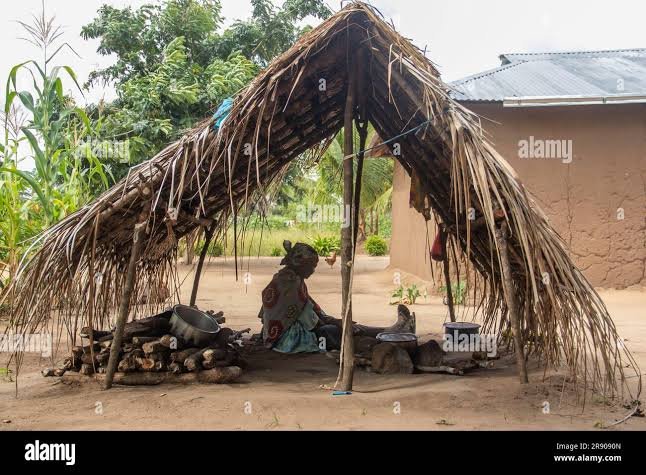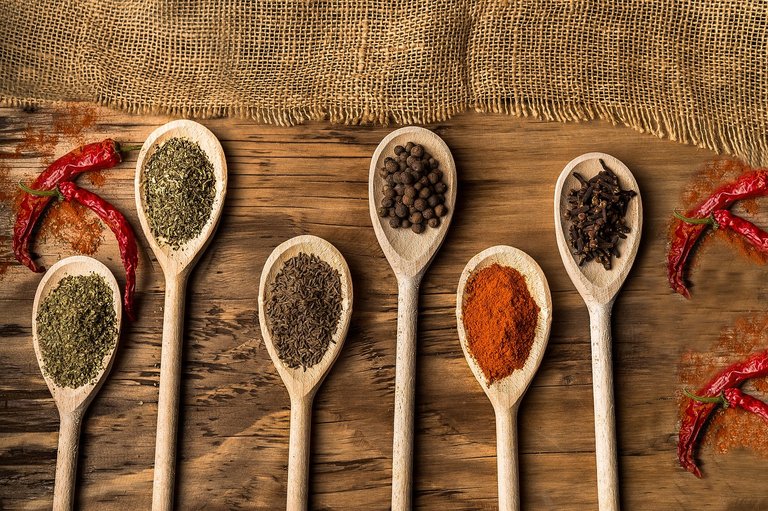INTRODUCTION
A kitchen is a place where all Foods in the home are been cooked and prepared, it also serves as a place where you can store some food packages as well. It is a place that is crafted out within the building of a house for the purpose of cooking and also in some cases a place for washing of plates and pots as well. It houses kitchen utensils as well such as; kettles, pots, plates, spoons, forks etc. But in the Igbo land where I hail from it is a kind of different. It is actually the opposite of the main definition and understanding of a kitchen.
DESCRIPTION OF AN IGBO LAND KITCHEN
I am from the Igbo land and from my homestead the kitchen there is really rich in cultural significance and also different from what a real definition of a kitchen is. In my home, the kitchen we have is located some miles away from the main building of the house and in most cases it is not usually or necessarily built with blocks and concrete mixed with cement rather it is built with zincs and sticks. It doesn’t have the same size of that of the normal kitchen attached with buildings, it has no windows at all but has only one door.
It doesn’t provide safety to a lot of kitchen utensils instead we do bring the things we use for cooking and then bring them into the kitchen. When we want to cook anything, we normally use firewoods and woods to make fire and cook instead of gas cylinder. The colour of the zincs used in the building of the kitchen usually changes after some months of settling into the kitchen, this is as a result of the smokes which accelerate from the firewood used in cooking inside the kitchen. These smokes go up and spread throughout the kitchen zinc-wall, thus, make the colour to eventually turn to black.
This description is actually that of the general type of the Igbo land kitchen, but there are other kitchen types which are generated from the individuals.
Source

WHAT OTHER KITCHEN TPYE DOES THE IGBO LAND HAVE?
In some lands, there are individuals who do not have a kitchen which is separated from their house neither do they have a kitchen that is attached to their house. You may wonder, where do they cook, where do they house all their kitchen utensils?
They prefer using firewood to cook outside in the open air without the cover of anything, they just bring out the things they are to use for the cooking and then they start the cooking just that way without even needing the space of a well of partially built kitchen. Their cooking utensils are housed inside the house probably in the corridor or in the passage leading off to backyard where they usually stay for cooking. It is also viewed by them as a kitchen.
SPECIALITY IN THE IGBO LAND KITCHEN?
Traditional ingredients such as bitter leaves, egusi seeds, palm oil and cocoyams are easily seen around while using the igbo land kitchen and then they are added to the meals been prepared in order to bring the taste of home. Popular dishes are also prepared there in the kitchen and they really taste nice as people do say that the taste of meals prepared by firewood taste better than that of those prepared by gas cookers.
Spices are not usually included in the preparation of these dishes as native spices such as uda (African nutmeg) and uziza(Guinea pepper) are easily gotten around the locality and are used in the preparation of meals. Fufu and Garri which are used to eat soups are also made locally in this kitchen as well making all the meals been eaten to be homemade and free from dangers gotten from eating from foods not knowing how they were prepared.
Source

Traditional cooking utensils such as wooden spoons and spatulas are also found in the Igbo land kitchen making it genuine and as though it is really from nature. Clay pots of all kinds and sizes are also used in the kitchen as well, in most cases they are used to store rainfall waters for washing later as we do in my home.
The igbo land kitchen also makes it possible for local snacks to be easily prepared and eaten. These snacks include roasted corns, plantain and peanuts. They are easily roasted above or beside the firewoods which are been lit for cooking and are done at the same time of cooking as it does not affect the cooking in any way.
It also allows for tradition to be carried out as some may have the community cooking tradition. It enhances it by creating an avenue for foods or meals to be prepared in large quantities for communal gatherings and celebrations.
DISADVANTAGESOF THE IGBO LAND KITCHEN
Limited ventilation
Inadequate storage
Exposure to elements of all kinds
Safety concerns
Time-consuming cooking
Limited access to modern amenities
Space constraints
Maintenance challenges
Pest and rodent infestations
Limited flexibility
CONCLUSION
In conclusion, the igbo land kitchen is a hub of tradition and love where meals are prepared with care sent from above. Though faced with a lot of disadvantages and challenges it remains a sacred space where culture and heritage blend with every pace. It preserves the past while embracing the new to know. It is a symbol of resilience and might a place where memories are made and love shines bright But as the modernization of the world goes on, it has the hope of thriving and growing.
Posted Using InLeo Alpha

Congratulations @renny187! You have completed the following achievement on the Hive blockchain And have been rewarded with New badge(s)
<table><tr><td><img src="https://images.hive.blog/60x70/https://hivebuzz.me/@renny187/comments.png?202408101305" /><td>You made more than 700 comments.<br />Your next target is to reach 800 comments. <p dir="auto"><sub><em>You can view your badges on <a href="https://hivebuzz.me/@renny187" target="_blank" rel="noreferrer noopener" title="This link will take you away from hive.blog" class="external_link">your board and compare yourself to others in the <a href="https://hivebuzz.me/ranking" target="_blank" rel="noreferrer noopener" title="This link will take you away from hive.blog" class="external_link">Ranking<br /> <sub><em>If you no longer want to receive notifications, reply to this comment with the word <code>STOP